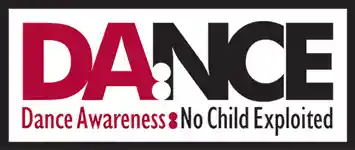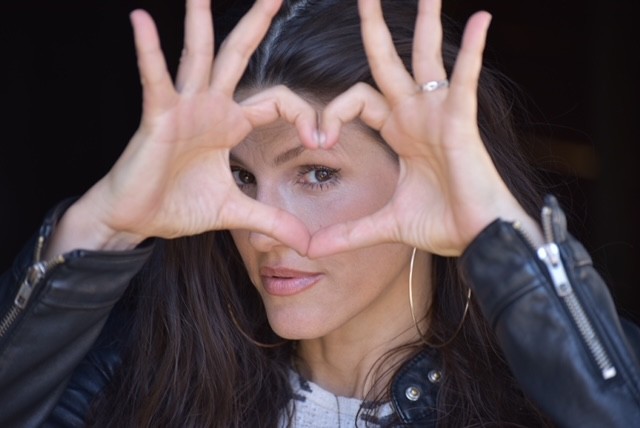Last September, I hosted a mini conference surrounding the conversation point, “Are Dance Competitions Disrupting the Power and Progress of Dance Education?”
Based on my research, the answer is unequivocally yes.
You see, in 2020, I wrote an infamous book called Trash the Trophies, which challenged the viewpoint that dance education had to normalize to dangerous and toxic trends set forth by the commercialized, regulation lacking, and highly capitalistic competitive dance industry.
On the dance competition stage, it is not uncommon to see grossly inappropriate and/or hypersexualized themes, choreography, song selections, and/or costuming. Audiences are not controlled and the images/videos from the thousands of events each season openly circulate on the internet.
As dancers are proclaimed and celebrated as “winners”, other dance studios rush to assimilate to the questionable standards of the competitive dance space. Group think is powerful- and, not always in positive ways. The normalization of this toxic culture has been swooped on by the mass media (think, Dance Moms) and exploited further, devaluing the true power and possibility of dance when it is leveraged in healthy over harmful ways.
When I wrote my book, I simply shared my story. To me, it was really a book about personal and professional transformative leadership, set to the backdrop of the competitive dance world. Leaving dance competitions saved my business, and quite frankly, my life.
I felt like that was a story that deserved to be shared. But, to others, it was an offensive attack on the only way they perceive as a successful track in dance.
In listening to both lovers and haters of the book, I’ve discovered that the issues we are experiencing via competitive dance have only exacerbated deeply rooted systemic issues in dance education.
These issues, which take center stage on multiple competitive stages around the country every single weekend, subjectively (and objectively) qualify performance as something that can be ranked, scored, and “won”.
If a routine containing inappropriate movement, choreography, costuming or themes is labeled a winner, the group immediately says that’s what should be done to pursue “notoriety”.
It’s created quite the dangerous precedent, as many have compromised their integrity and values to conform to a very self-serving system. The competitions isolate themselves, speaking and relying solely upon the dance studio owner’s endorsement and collection of client funds.
The parents and students of the dance studios are trusting that the studio owner is advocating in their best interest, pouring over thousands of dollars under the pretense this expense is a necessity for quality dance training.
The studio owner is caught in the middle.
They’re frustrated.
They’re deflated.
The parents and students are trying to make sense of it all.
They’re frustrated.
They’re annoyed.
The competitions don’t have to deal with the fall out and fractures within studios.
They collect their copious amounts of money.
And, then, they move on to the next city.
Because of this traveling sales model, the accountability for safety and standards has been pretty nonexistent, When standardization has been attempted, it has been incredibly flawed.
- Routine concepts, costuming, music, and choreography are often inappropriate, especially for the age and developmental maturity of the child. Though the rules suggest appropriateness is prioritized, this is also subjective and infrequently enforced.
- Convention culture throws students into unhealthy “training” environments in packed hotel ballrooms with hundreds of others. Can children really “learn” in this type of environment when teachers are scouting out the best?
- Historically, the party culture of these events has been accepted, and even celebrated. Drugs and alcohol are commonplace. Boundaries are blurred.
- As a response, to the above cracks in the system, abuse allegations have amplified in recent years, creating a reactionary response from the competitions.
- Even with allegations at play, people are still hiring some of the accused because they are talented and can create “winning pieces”.
While the competitive sphere is certainly responsible for setting the precedent for many problems in the dance education space, there’s a greater opportunity for dance studios, educators, and parents. We can demand, set, and uphold higher standards because not only does dance deserve better, children deserve better.
- We can examine routine concepts, costuming, music, and choreography. If something feels inappropriate, we can use our voices to advocate for healthy over harmful alternatives.
- We can advocate for healthy, collaborative learning environments.
- We can set expectations for child and family friendly learning and enrichment experiences.
- We can create safe learning spaces with careful vetting of participants.
- We can provide meaningful performance time on stages without the arguably meaningless veil of competition.
- We can educate that competitive participation is not required for a career in dance. And, there are much stronger ways to boost a dancer’s college resume or personal profile.
If you choose to continue participating in dance competitions, I beg you to understand the beast you are feeding and how it may impact your child, studio, and business.
If you choose to opt out, I hope we can all normalize non-competitive pathways as successful alternatives.
The perception of dance education in the media right now is jarring. From Dance Moms: A New Era on Hulu to “candy salads” of trauma (a popular TikTok trend where users share the ways dance traumatized them), we are at a crossroads for how dance education will be depicted in the decades to come.
Will we choose to create and uplift safe training spaces where healthy over harmful dance education is prioritized?
Or, will we continue turning our heads to the reality of how we are all being represented in the mainstream?
We deserve better.
Our dancers deserve better.
Dance deserves better.
Bio: Orphaned as a child, Chasta found comfort in the creativity, play, and catharsis of the performing arts. This led to a life as an arts entrepreneur where she believes that everyone has the power to reach their fullest potential and disrupt the status quo in an empowering and inspiring way. She is personally doing that through her entrepreneurial endeavors, writing and motivational speaking. This niche in change management has developed through a variety of personal and professional challenges that have forced her to find optimism in her quest for success, happiness, and impact. Chasta is the Founder/ CEO of Stage Door Dance Productions and Founder/ President of the non-profit Girls Geared For Greatness. She’s also a best-selling author (Trash The Trophies and Handle the Horrible) and speaker (TEDx: You Weren’t Built to Break). Chasta lives in Raleigh with her husband, John, their son, Bash, and their Scottish Terrier, Elvis



